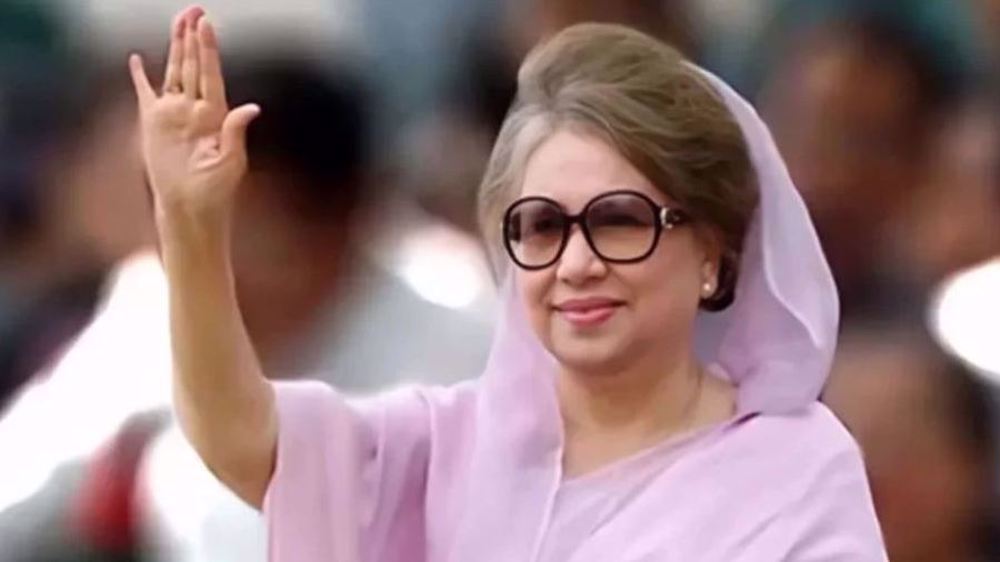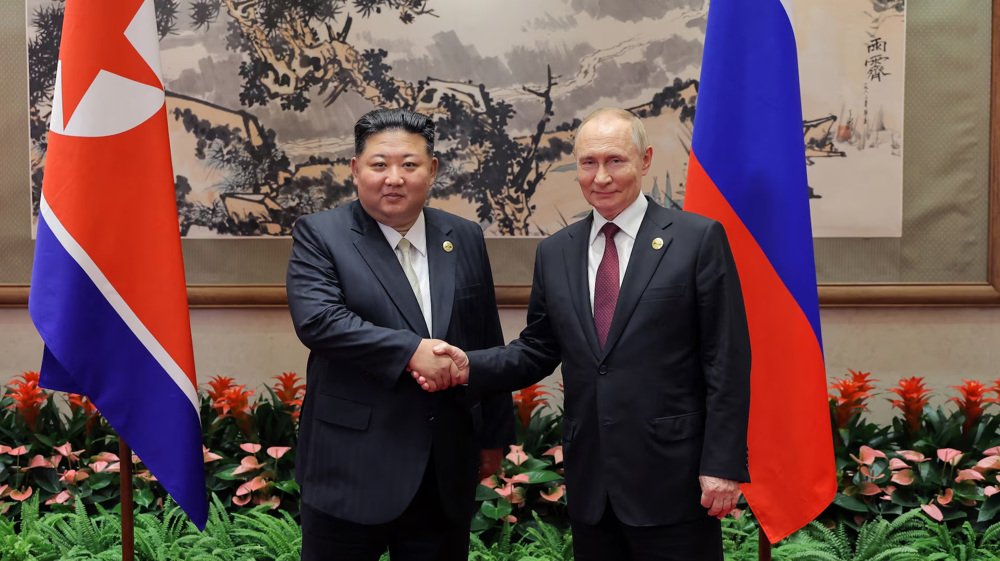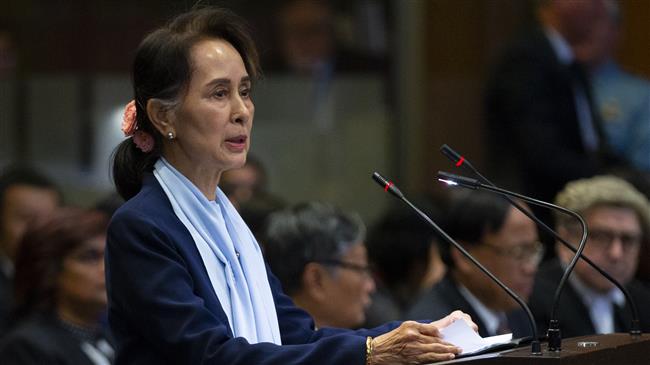Rohingya people, kids stand trial for ‘illegal travel’ while fleeing persecution
Myanmar authorities have taken to court a group of Rohinyga Muslims, including children, on charges of illegally travelling without proper documents after they tried to flee persecution.
“They said they ran away because conditions are difficult over there,” said defense lawyer Thazin Myint Myat Win, referring to the Rakhine State, where most members of Myanmar’s Rohingya community live.
A group of 93 people, including 23 children, were brought to a court in the delta town of Pathein on Friday.
They were arrested on a beach in the Irrawaddy river delta region, in late November, as they were fleeing the remote western Rakhine State.
Authorities accused them of not having the necessary documents for traveling. If convicted they face up to two years in prison.
“They said they ran away because conditions are difficult over there,” said defense lawyer Thazin Myint Myat Win.

Girls and boys were lined up in the court to listen to the testimony. Some of them, who were scared and crying during the testimony, were threatened by the judge, who was speaking to them through a translator.
“You cannot make a noise in the court during the hearing. If so, you will lose your rights,” Reuters quoted judge Khin Myat Myat Tun as saying.
Around 740,000 Rohingya fled to neighboring Bangladesh after a bloody crackdown by the Myanmar military in 2017 which UN investigators have already described as genocide.
Some 600,000 Rohingya, however, are still living in Rakhine under circumstances described by the United Nations as deplorable.
For years, the persecuted have risked their lives to flee Rakhine on boats bound for Malaysia, Indonesia or elsewhere in Southeast Asia.
Myanmar has arrested several groups of Rohingya Muslims since the country’s de facto leader, Aung San Suu Kyi, attended a three-day hearing at the International Court of Justice (ICJ) in The Hague and defended her country's atrocities against the Muslim community.
During her testimony, Suu Kyi claimed that while disproportionate military force may have been used and civilians killed, the acts did not constitute genocide.
The Nobel Peace laureate claimed that the military's actions were in fact a "clearance operation" in response to militant attacks against police stations in the State of Rakhine.
In her closing argument at the UN court, Suu Kyi implicitly threatened that accusing her government of genocide would risk reigniting “an internal armed conflict in northern Rakhine."
"Steps that generate suspicions, sow doubts or create resentments between communities who have just begun to build the fragile foundation of trust could undermine reconciliation,” she said.
She claimed that her government “actively investigates, prosecutes and punishes soldiers and officers that are accused of wrong doing.”
Last year, Myanmar's military announced that seven soldiers involved in a massacre of 10 Rohingya men and boys in the village of Inn Din in September 2017 had been sentenced to "10 years in prison with hard labor in a remote area".

They were the only security personnel the military has said it has punished over the 2017 operation. They were granted early release after less than a year in the prison.
One of the soldiers confirmed to Reuters that he had been released but declined to comment further, saying: "We were told to shut up."
Analysts say the final ruling on genocide may be years away.
A United Nations fact-finding mission has previously found that “the gravest crimes under international law” have been committed in Myanmar and called for genocide trials.
The International Criminal Court (ICC) recently approved a long-awaited full investigation into the crimes against the Rohingya minority.
Soldiers and Buddhist mobs razed hundreds of villages in the remote western Rakhine State, torturing, killing, and raping the Rohingya people.
The Rohingya have inhabited Rakhine State for centuries, but the state denies them citizenship.
Pentagon funnels billions to Boeing for Israeli F-15s amid Gaza genocide
Report: Trump frustrated with Netanyahu but avoids public spat
VIDEO | Iran holds intl. event to mark 6th martyrdom anniversary of General Soleimani
Iran condemns Trump’s ‘grave and explicit’ threats, urges UN action
Israel bans over 30 aid groups in Gaza under new registration rules
VIDEO | Sudanese refugees build new life in Ethiopia
The Year That Was: Pro-Palestine campaigns that disrupted US-Israeli war machine in 2025
‘You may be surprised’: Iran’s top legislator warns enemies about scope of future defensive measures













 This makes it easy to access the Press TV website
This makes it easy to access the Press TV website